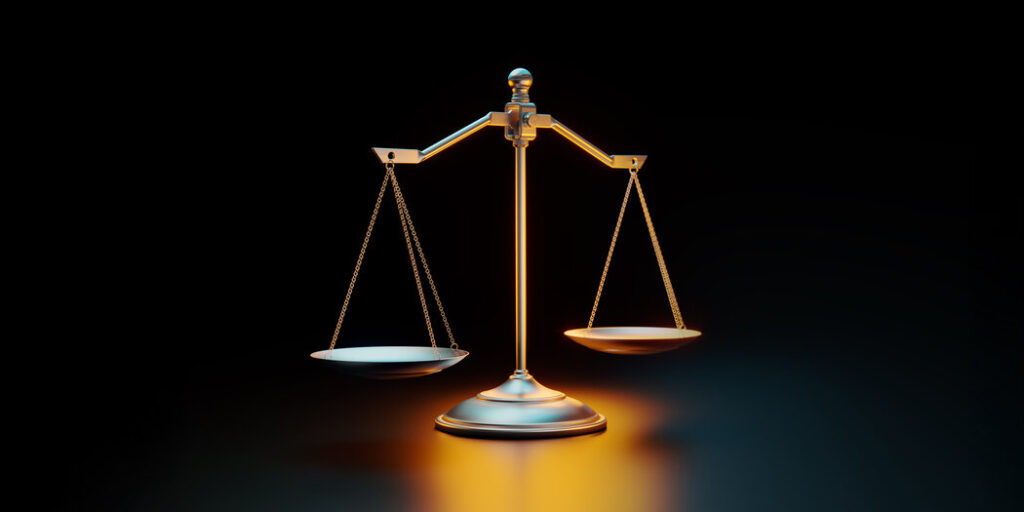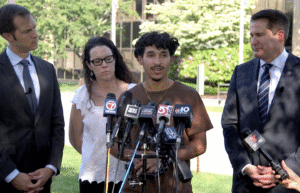Recently, more than ten federal courts have halted or rejected various actions by the new Trump administration, addressing significant issues such as spending and birthright citizenship. Numerous lawsuits challenging the administration’s initial actions remain pending. Statements by top Trump adviser Elon Musk and Vice President JD Vance have openly questioned judicial authority, suggesting a possibility that the administration might disregard court rulings it disfavors. A judge has already ruled that the Trump administration is not adequately adhering to court orders. This situation raises the question: What occurs if the government refuses to comply with federal court decisions?
The Supreme Court has emphasized that “all orders and judgments of courts must be complied with promptly.” Courts frequently intervene when their rulings are ignored. Below is an outline of the tools federal courts may use to enforce compliance or address noncompliance with their decisions.
How can federal courts enforce their orders?
Courts have several vital tools to enforce their orders, including contempt proceedings and attorney sanctions. Judges often utilize these enforcement tools against private parties and government officials appearing before them.
Holding parties in contempt
When faced with noncompliance, a federal court can employ its contempt power to compel action or penalize a party for not following an order. The Supreme Court has recognized this power as “essential to… the enforcement of the judgments, orders, and writs of the courts,” inherent in courts’ authority. This power was established during the founding era through the Judiciary Act of 1789.
Contempt proceedings are divided into civil and criminal types, each potentially resulting in sanctions, fines, and, in extreme cases, imprisonment. Federal courts have significant discretion in determining contempt, with the judge often being the sole decision-maker unless a serious criminal penalty involves a jury.
Civil contempt aims to ensure future compliance with court orders, allowing parties to avoid punishment by complying. An instance involved a New York state court that fined President Trump $110,000 in 2022 for civil contempt, requiring daily fines until compliance with a document turnover order was achieved.
Criminal contempt requires more procedural safeguards, intending to punish noncompliance. Unlike civil penalties, defendants cannot avoid punishment through compliance. However, the president can pardon those convicted of criminal contempt, as Trump did in 2017 for former Maricopa County Sheriff Joe Arpaio, who was held in criminal contempt for violating a court order.
Public officials fall within the judiciary’s contempt power scope. Although federal courts have never held a sitting president in contempt of court, they have compelled action by and penalized government agencies and officials, such as the Environmental Protection Agency and Betsy DeVos, the former Secretary of Education.
Issuing stricter orders
Before initiating contempt proceedings, judges may reiterate and specify benchmarks for compliance if they believe a party is not adhering to a court order. For example, U.S. District Judge John McConnell issued a temporary restraining order in 2025 to release frozen federal grants and loans. Despite complaints of noncompliance, McConnell determined the Trump administration violated his order but refrained from contempt proceedings, instead clarifying compliance requirements.
If all other measures fail, courts can issue a writ of mandamus, compelling a government official or employee to perform a legally required act. While rare, courts possess the authority to issue such orders under federal law, specifically for nondiscretionary and purely ministerial duties.
Sanctioning attorneys
Courts hold broad disciplinary power over attorneys, permitting sanctions for aiding clients in defying court orders deliberately. Under Federal Rules, courts can penalize attorneys for improper filings or noncompliance with court rules, with penalties ranging from fines to suspension or disbarment.
Who do courts rely on to enforce orders?
While judges can order sanctions, enforcement relies on law enforcement and federal prosecutors. The U.S. Marshals Service, part of the Justice Department, serves as the primary enforcement arm, executing court orders, serving summonses, and making arrests as required.
Federal prosecutors typically handle criminal contempt cases, but judges can appoint private attorneys if the U.S. attorney’s office declines. The Supreme Court recently declined to hear a petition regarding the constitutionality of a criminal contempt prosecution by an appointed private attorney.
Have elected officials generally followed court orders?
Historically, presidents and elected officials from both parties have adhered to court orders, despite disagreements. President George W. Bush exemplified this principle by stating, “We’ll abide by the Court’s decision,” following a Supreme Court ruling on detainees in Guantanamo Bay.
During his first term, Trump complied with court orders, even when expressing dissatisfaction, such as when a federal court blocked his travel ban affecting seven majority-Muslim countries.
Widespread defiance of court orders by elected officials last occurred when Southern governors resisted school desegregation following the Supreme Court’s decision in Brown v. Board of Education. President Dwight Eisenhower enforced the ruling by dispatching troops, stating, “The Supreme Court has spoken and I am sworn to uphold the constitutional process in this country, and I will obey.”





